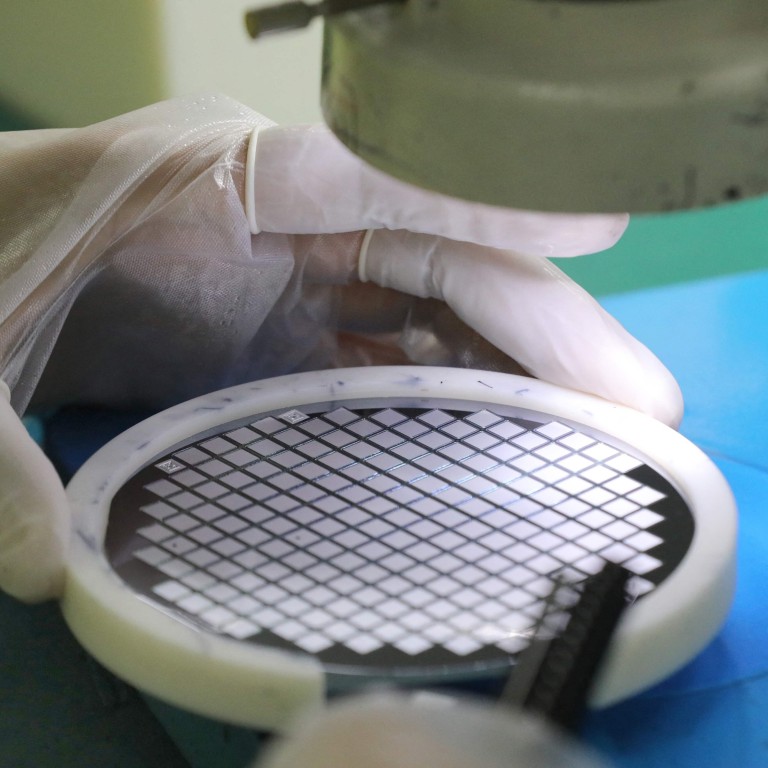
China’s semiconductor output hits record high as Beijing boosts local production amid intensifying US-China tech war
- China’s integrated circuit output surpassed 30 billion units in June, a 44 per cent increase over the previous year
- Demand for advanced chips from overseas remains high, with imports up nearly 30 per cent for the month, as Beijing pursues semiconductor self-sufficiency
China’s IC output reached 30.8 billion units, surging 43.9 per cent from the same month a year ago and beating the previous record of 29.9 billion units in May, according to data from the National Bureau of Statistics. The numbers mark the first time China has produced an average of 1 billion semiconductor units per day in a single month.
For the first half of the year, China produced 171.2 billion integrated circuits, up 48.1 per cent year on year, according to the statistics agency.
‘Supply chain chiefs’ are China’s new weapon in tech war with US
Still, China’s chip producers continue to fire on all cylinders to keep up record output, which was 29.1 billion units and 28.7 billion in March and April, respectively.
While China’s chip makers are not able to produce high volumes of advanced 14-nanometre node chips or smaller – which are used in powerful gadgets like the latest iPhones – they can produce chips using more mature IC technologies for home appliances and cars.

02:18
Chinese XPeng electric car can drive and park by itself
The surge in new chip companies and output comes on the back of a wave of investments in the sector, thanks in part to Beijing’s generous subsidies and other incentives.
China’s semiconductor industry has been hit with a slew of US sanctions imposed by Washington over national security concerns. Mainland foundry Semiconductor Manufacturing International Corp (SMIC) – which has been sanctioned for its alleged ties to the military, a charge it denies – is far behind Taiwan Semiconductor Manufacturing Co (TSMC) in fabrication of advanced chips, while China has been blocked from acquiring advanced lithography tools from Dutch industry leader ASML.

